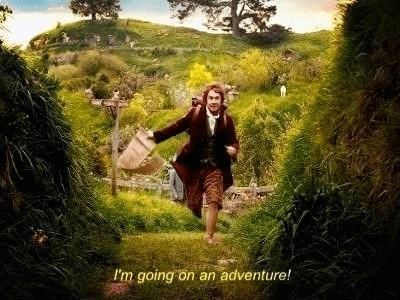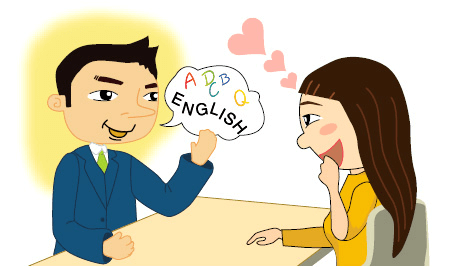What Happens When You Speak More Than One Language?
 Unsplash: Sidral Mundet
Unsplash: Sidral MundetIn some parts of the world, it’s always fascinating whenever someone speaks more than one language. Yet in other parts, it’s pretty common that most people speak two to three different languages and it’s not that mindblowing.
But how big a part of you is your language really?
There are quite a few subtleties that go unnoticed when you only speak one language but as you start to speak more you find out that a lot of our differences around the world are actually centered around language – which shapes your life in pretty significant ways.
Allow me to explain what happens.
Multiple Languages Mean Multiple Ways Of Experiencing The World
Lets first get a quick overview of all the lingual titles that’s attributed to how many languages you speak fluently or at a native level.
The most common ones are quite self-explanatory. After that, it gets a little muddy and you can find different opinions and a myriad of subcategories but generally, it’s like this:
- Monolingual – Speaks one language.
- Bilingual – Two different languages.
- Trilingual – Three different languages.
- Polyglot – (Three)/Four+ different languages.
- Hyperpolyglot – Six+ different languages.
Unfortunately, being monolingual is quite common in the English speaking part of the world because there’s no huge incentive or requirement for learning any other language.
But what happens when you move from monolingual life to trilingual life or even on to speaking several different languages?

The Chameleon Effect – When you ‘change’ depending on what language you speak.
There’s a peculiar thing that happens once you start to know two or more languages intimately well. In some ways, it feels like having a special clearance level to life, except slightly less espionage.
In fact, it’s like you open a door inside your brain that you previously had no idea existed.
Many multilingual speakers will tell you that they often behave and even express themselves differently when switching between languages.
This has definitely occurred to me and I do believe that my approach to a conversation, whether it’s in German, Spanish or English changes.
But not necessarily in a way that my personality becomes fundamentally different as I’ve heard other multilingual speakers say.
One trilingual explains this pretty well:
“When talking English, French, or German to my sister, my personality does not change. However, depending on where we are, both our behaviors may adapt to certain situations we find ourselves in.”
There are cases where people talk about feeling more reserved and pensive vs being more outgoing and bold in one language over another. Sure, different languages invite different behaviors but I also think it has to do with how comfortable you are in that specific language.
For example, if you’re near fluent in French but completely fluent in German then for sure you’ll be more outgoing in German most of the time – assuming this is one of your main personality traits when speaking your first language.
Maybe you’ve recognized a similar experience yourself? Or maybe you’re curious to find out how this happens?
Well, there is one specific change that happens in your personality when crossing over from one language to being bilingual, trilingual or further that you can refer to as the “Chameleon Effect”.
You change, adapt and blend into a conversation depending on who you’re speaking with.
On the obvious side, what happens is that you can switch between the languages you know like a damn chameleon and you can do it instantly in ongoing conversations, sort of like a live translator.
But there’s also something going on at a deeper level.
You’re not just flashing a ‘language-catalog’ to show off [well, possibly a little.] It’s more often because you’re searching for the best possible explanation, or seeking the most authentic way to express something – and each new language offers uniquely different options and ways of explaining the same thing that is usually taken for granted as the same understanding.
It´s a way that your mind is wired differently from being monolingual.
Have you ever asked someone who speaks multiple languages to explain the meaning of a proverb? Then find them pondering how to explain or translate it, usually coming up with multiple options for each language leaving you with even more confusion than before you asked.
It wouldn’t surprise me. I usually have a lot of fun discussing proverbs and idioms with different speakers I meet on my way.
Once I was talking to a fellow Danish multilingual who tried to explain a Danish proverb.
He wrote it down, “Hastværk er lastværk.”, and said it means something along the lines of, “Don’t be hasty.” At that point, I couldn’t help but burst out laughing and add a few lame Lord of the Rings-jokes.
The point is he couldn’t exactly explain it in a way that would pass over the same meaning and profound understanding that would’ve been available to me if I spoke Danish.
The closest we got to a solid understanding was, “Fast work produces poor quality.” I’m still not entirely sure of its exact meaning to this day.
I mean, try explaining, “A drowning man will clutch at a straw”, to a non-native English speaker.
Even the meaning of the exact same words in either language can be different. Because we have different understandings and emotions attached to it.
You might not realize this in your daily life but,

As you get fluent in more languages you discover that each one commands wildly different perceptions.
Let me explain.
Cognitive scientist Lera Boroditsky talks about how nouns in different languages that are either feminine or masculine changes the way speakers of that language describe those exact same words.
The moon, “Der Mond”, in German, is masculine while it’s feminine in Spanish, “la luna”.
It’s the opposite with the sun, “Die Sonne” and “el sol”.
That’s not so strange in and of itself right?
But it’s actually common that Spanish speakers will attribute more feminine characters to a word like “moon” where German speakers will make these more masculine.
You can see it as well in how the two describe rivers. “Rivers” are mostly masculine in Spanish and mostly feminine in German.
Because of this, rivers tend to be described as huge or strong in Spanish, “Rio Grande” whereas in German they are more elegant and beautiful, “Schönen Donau.”
Boroditsky goes even further to how we experience events like an accident of someone breaking something. In English, we say that “he” or “she” did it even if it was an accident, whereas in Spanish you wouldn’t assign blame to anyone but simply say “it” broke.
Or something banal as breakfast. In France breakfast is typically a croissant or other type of pastry and a quick coffee. That’s it. “Petit déjeuner” – a small lunch. Pretty much the least important meal of the day.
On the other hand, “Ich früstucke”, in German literally means I’m ‘breakfasting’. Not just eating or having breakfast but more like an important event. Language shapes this behavior.
Let’s do a quick experiment.
If you were asked to lay out five pictures of yourself at different points in your life would you organize them young to old or old to young?
With your answer, think about how we read languages differently, for example, English is left to right and Japanese where it’s often right to left.
Each is completely intuitive to any fluent/native speaker but at the same time, we walk around with these different, sometimes opposing, assumptions about how everything is pieced together.
There are plenty of other examples of how we decide “meaning” and experience the world around us depending on what language we speak.
The point is, it shapes how you think about specific words and events without you necessarily realizing it. Even space and time can be perceived differently, and thereby also your opinion and emotions when viewing the world from a specific set of language spectacles.
Multiple Languages Introduce Unique Advantages
Whenever I experience the “chameleon effect” or find that one language takes precedence over another, [especially when it comes to reading books in their original language], one of the reasons this happens is because you’re usually also switching between different cultures and a history of the people that shape the language and vice versa.
All this diversity around the world is exactly where knowing multiple languages gives you an upper hand
You can absorb a way of life from the original source without getting lost in translation.
The way we talk is different, humor is different, what’s considered polite vs offensive is different, even food, what we eat, the way we eat it and why, is different across languages.
I’d argue you cannot fully appreciate this diversity before you develop a whole new understanding by speaking that language – but when you do it’s like you don’t live in the same world anymore.
Famous hyperpolyglot Richard Simcott has said, “It seems almost odd for me to talk about being just British now.”

It’s unique access to other cultures.
If you’re considering learning a new language I assume it’s because you want to go out and use it. Perhaps when traveling to other countries or even moving there for a while, and believe me, that’s an entire adventure where language will open up the world like you wouldn’t imagine.
As you speak more languages, your friends may increasingly be from a variety of different countries and backgrounds because language is often the last obstacle for meeting ‘real’ local people and learning about their way of life [while obviously making fun of each other’s stereotypes.]
You make instant connections when you know something about another person’s country or heritage.
That’s when you’ll be introduced to the hidden gems you won’t be able to find on tours, see places and experience parts of cities that you otherwise never would have had access to.
Even getting invited into people’s private homes for a meal and a good time, [yes, this happens].
Think about it… Speaking in someone’s native tongue naturally makes that person open up and gives an impression that puts you ahead of most other people [tourists] visiting that country.
It shows that you’re truly interested in understanding not only them but their way of life. And the conversations you’ll have and the way you get to know people in their first language are simply unmatched.
Have you ever spoken just a few words to a foreigner in their language?
What happens is they most often light up like Christmas day. Because why wouldn’t they?
After all, imitation is the sincerest form of flattery… or whatever Oscar Wilde wrote.
One thing I’ve discovered is that speaking to someone in English, [most of the time], makes for bare necessity communication – but speaking to someone in their first/native language speaks to their soul and a little goes a long way.

This could unlock new parts of your life
You might decide to live, study or work in another country, start dating outside your first language and eventually end up marrying someone from another country.
Maybe that sounds far fetched but with the way language opens up your perspective of the world, it’s not at all unlikely.
People tend to become more open to new ways of looking at things [like the Boroditsky example] , but you also become more lenient and understanding because you know how to navigate differences and are more likely to gain empathy.
Just like it opens up opportunities, language is also a lyrical way of being exposed to the world.
There’s a certain flow to it and order in which words appear that has the power to spike every emotion we’re able to experience. It can make you sad, angry, curious, excited or make you laugh your ass off.

Which bring us to multilingual conversations
One of the most interesting and bizarre things that happen from time to time is that you overhear, [possibly eavesdrop on] conversations from people who don’t expect you have a clue of what they’re talking about
When people assume you don’t speak their language they’ll have some pretty private conversation right next to you. Sometimes horrifying as this section on Quora will show you.
It’s also inviting to start speaking in ‘code’ mixing up multiple languages. Sometimes you need to get out of a tight situation, maybe you want to have a more private conversation in public, [again watch out for this one], and sometimes it’s just plain fun to confuse other people who don’t understand.
You Need The Right Attitude To Become Trilingual or Beyond
What’s important if you want to speak multiple languages is that you have to agree that it adds another dimension to your life. An invaluable change in the way you live and how you think.
Of course, this kind of access to the world takes effort although you can make the approach more straight forward.
There’s a popular saying these days, “No pain, no gain”.
If you put this in German it’s, “Ohne Fleiß kein Preis” – but the actual meaning in German is more like, “without due diligence no price.” Yes, I’m inviting every German stereotype here.
But it’s important to mention that due diligence is required to learn any language to a level of fluency.
If you look at some of the [hyper]polyglots they all share more or less a similar way of looking at language.
Much like Richard Simcott feels attached to more cultures outside of the British by speaking more languages, Benny Lewis finds life in one language to be limiting.
Olly Richards thinks it’s the most incredible experience you can add to life and that language essentially is about enhancing and changing your life by communicating with other people.
Polyglot Susanna Zaraysky also looks at languages as a unique way to open your view of the world and says she’s, “developed a deeper understanding of life in other countries than most travelers who only speak to English speakers”.
There are plenty of similar examples to be found everywhere and the commonality seems to be that once you start drinking off the language fountain you start to care more about other cultures.
This may not be your goal in life but bilinguals, trilinguals and multilingual speakers inherently start to value a deeper connection with people around the world.
If you’re out here to learn another language then this impulse to get out and meet new people who have very different ways of life from your own is a must-have.

Wouldn’t it be better if we all just stay in our different language bubbles?
Sure, it might be good enough for some.
But there’s a lot more to life outside that bubble that is otherwise undiscovered.
So, if you want to start a journey that has shaped the lives of many others [including myself] before you, in ways they wouldn’t have been without, then it’s never too late to learn a new language – and who knows you might love it so much that it will take you to unimaginable places.
If you’re all disoriented about what language you should learn then here’s a thing or two about deciding a language that’s right for you.
Or you can just go straight ahead and start your adventure on Beelinguapp with an audiobook-story that lets you read along at your own pace with authentic native pronunciation flowing from your headset.


